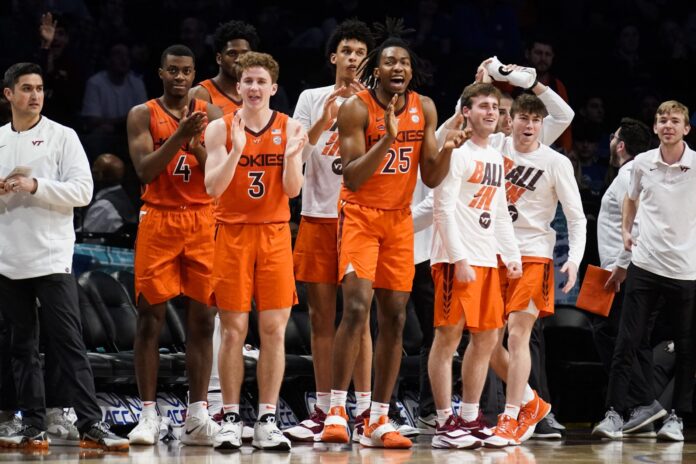Six Virginia men’s and women’s basketball teams made it into March Madness, but state law prevents fans and bettors from placing wagers on their favorite in-state college teams.
Lawmakers attempted to change that law this session. Sen. Monty Mason, D-Williamsburg, introduced Senate Bill 576 that would allow Virginia sports bettors to bet on games played by Virginia colleges. The bill passed the Senate in a 23-17 vote, with legislators from both parties voting for and against it, but the measure died in the House General Laws Committee.
“People look at this issue backwards,” Mason said. “I believe that the biggest part of it [the bill] is making sure underground gambling, that has always existed, is eliminated.”
Almost 30 states allow some form of online or in person sports betting since the U.S. Supreme Court struck down in 2018 the federal ban on sports betting, according to American Gaming Association, a trade group that also lobbies on behalf of the U.S. casino industry.
Rules and limitations of sports betting, including in-state college betting, is up to each state when creating legislation. Currently 12 states that have legalized sports betting prohibit local college wagers, according to betting news website Play USA.
Virginia legalized sports betting in April 2020. The first sportsbooks – a place or online site that accepts sports bets – went live in January 2021. Virginia was at one point the fastest state to wager over $1 billion in bets, according to Play Virginia, a betting updates and news website.
However, lawmakers left out a provision that would allow in-state college betting, according to the bill.
Virginia citizens still have several ways to bet on in-state colleges, whether it be an offshore sportsbook or simply crossing the state border, according to Dustin Gouker, an analyst for the U.S. sports betting and sports fantasy news website Legal Sports Report.
“There’s so many ways to wager right now on colleges that carving them out from Virginia sportsbooks doesn’t really make a whole lot of sense,” Gouker said.
Multiple Virginia college presidents requested in a joint letter to lawmakers that in-state college betting be eliminated when lawmakers were in the process of passing sports betting legislation in 2020, according to Mason.
The safety of student athletes is an ongoing concern when creating new legislation, according to Carolyn Hawley, president of the nonprofit Virginia Council on Problem Gambling.
“A lot of dialogue is about the harm to student athletes, that being in their own state places more risk for illegal natures and sabotaging of games,” Hawley said.
However, manipulating athletes and the outcome of college games is not a common practice, according to Gouker.
“Trying to manipulate a college game for betting purposes is pretty hard,” Gouker said. “If there was a large wager, those things raise red flags in today’s regulated market.”
The concern isn’t just over college athletes. College students display higher rates of gambling addiction, according to Hawley.
“There’s a misconception in the general population that there is less risk associated with gambling,” Hawley said. “And that’s just not the case. So, we have to educate people that this is a highly addictive behavior.”
Calls related to seeking help for problem gambling increased 114% from 2020, according to Virginia Council on Problem Gambling’s 2021 annual report. Of the calls made, 15% were related to sports gambling.
Some students who participate in sports betting find it makes games more interesting to watch.
“I think sports gambling gets a bad rep because of the past,” VCU student Gabriel Aref said. “Random games I would never have interest in, if you bet on it, it’s more fun to watch.”
The conversation of in-state college sports betting remains alive even though the bill has died, according to Mason. Debates of in-state betting will appear as more states continue to pass legislation legalizing sports betting.
Prior to presenting to the House, Mason said he was doubtful that the bill would pass after the identical House Bill 1127 failed to advance from a House committee in February.
“Whether it works this year or next year, at some point this is going to happen,” Mason said. “Because you got to take the final step to try to do away with the gambling that have always been behind closed doors.”
– Kaitlyn Fulmore / Capital News Service


